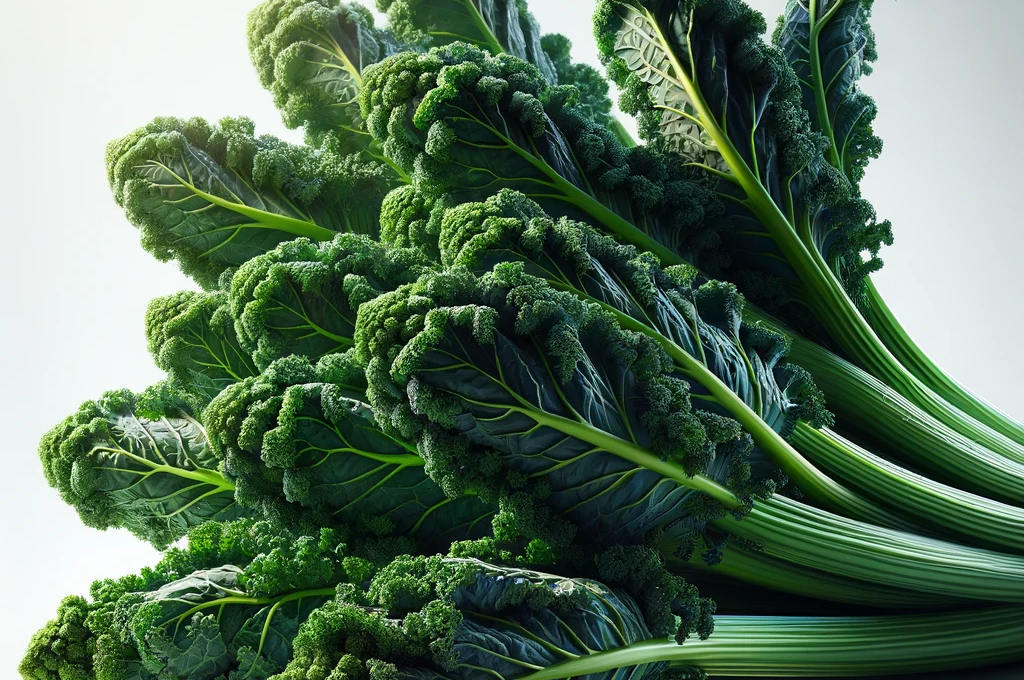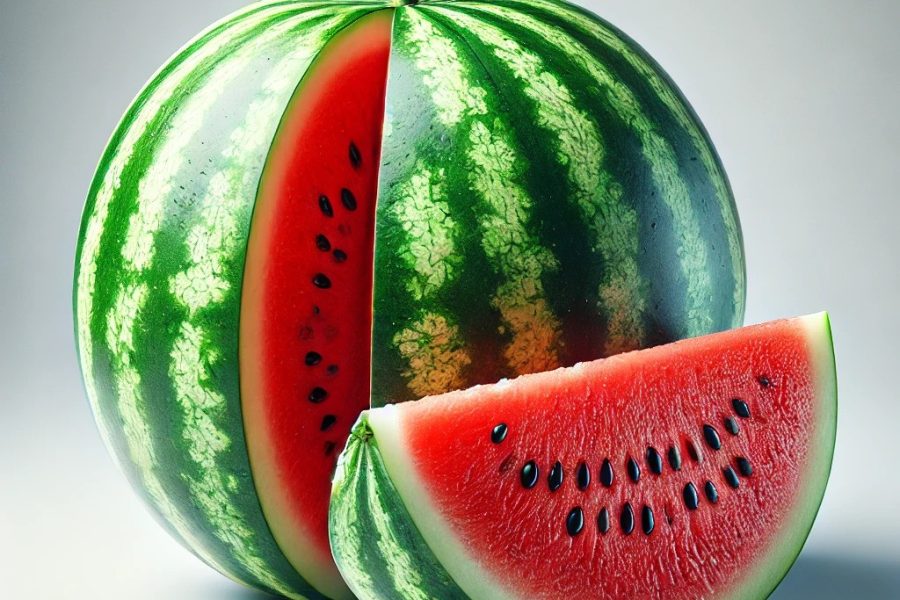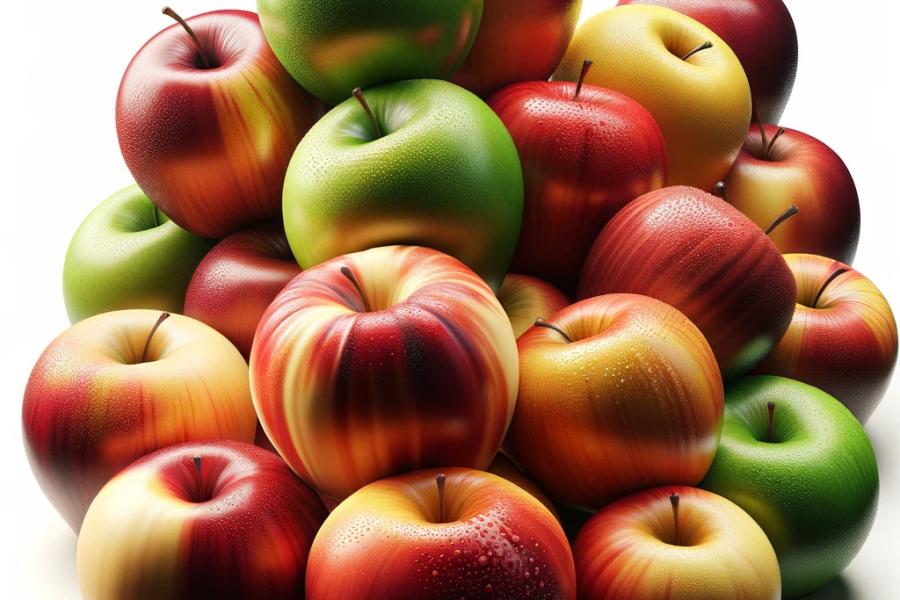Kale, the leafy green superstar, has been on the health radar for quite some time now, and for good reason! This vegetable isn’t just a trend; it’s a nutrient-packed powerhouse that has been nourishing people for centuries.
Fun Facts:
- A Culinary Chameleon: Kale can be baked, sautéed, blended into smoothies, or even eaten raw. Its versatility in the kitchen is unmatched.
- Ancient Greens: Kale has been cultivated for over 2,000 years, with its popularity dating back to Greek and Roman times.
- Winter Warrior: Kale actually becomes sweeter after a frost, making it a great winter crop.
- Colorful Varieties: While we mostly see the curly green type, kale can also come in colors like purple and even black.
Nutritional Facts:
Kale is celebrated for its high vitamin content, especially vitamins A, C, and K. It’s also a great source of minerals and fiber.
Here’s a breakdown of its nutritional content per 100g serving, with the % RDA based on an average adult diet of 2,000 calories. Nutrients above 10% RDA are bolded.
| Nutrient | Amount per 100g | % RDA |
|---|---|---|
| Calories | 49 | 2.45% |
| Protein | 4.3g | 8.6% |
| Carbohydrates | 8.8g | 2.9% |
| Fiber | 3.6g | 14.4% |
| Sugar | 2.26g | – |
| Fat | 0.9g | 1.4% |
| Vitamin A | 241 μg | 30.1% |
| Vitamin C | 93.4mg | 124.5% |
| Vitamin K | 389 μg | 487.5% |
| Calcium | 150mg | 15% |
| Iron | 1.5mg | 8.75% |
| Magnesium | 47mg | 12.5% |
| Phosphorus | 92mg | 9.2% |
| Potassium | 491mg | 10.4% |
| Sodium | 38mg | 1.58% |
Antioxidants:
In this table, antioxidants that are particularly abundant in kale are highlighted. Kale is rich in several powerful antioxidants, including vitamins and flavonoids, contributing to its overall health benefits. These antioxidants play a crucial role in protecting the body from oxidative damage and supporting overall health. Kale is a great choice for an antioxidant-rich diet!
| Antioxidant | Found in Kale | Known Benefits |
|---|---|---|
| Vitamin A (Beta-Carotene) | High | An essential vitamin for eye health and immune function. Also acts as an antioxidant. |
| Vitamin C | High | Vital for immune function and skin health; also helps in collagen synthesis. |
| Vitamin K | High | Important for blood clotting and bone health; also has antioxidant properties. |
| Quercetin | High | A flavonoid with anti-inflammatory and antioxidant effects. |
| Kaempferol | High | Another flavonoid that may reduce the risk of chronic diseases due to its antioxidant properties. |
| Sulforaphane | Moderate | Has potential anticancer properties and also acts as an antioxidant. |
| Lutein & Zeaxanthin | Moderate | Carotenoids important for eye health, with antioxidant effects. |
Heads up:
Hold your smoothies, folks! While most of us can dive into this leafy green without a second thought, there are a few who might want to navigate the kale waters more cautiously. If you’re taking blood thinners, kale’s vitamin K abundance could throw a wrench into your medication’s works, like an overzealous health enthusiast in a yoga class. And those with thyroid issues? Too much kale might just be like an unwelcome guest at the hormone party. So, while kale might be the Superman of veggies, remember, even Superman has his kryptonite!
Did you know…
Kale, the star of the superfood stage, has some lesser-known benefits tucked under its leafy wings. Beyond its fame for vitamins and minerals, kale is a master at supporting a healthy gut. Its fiber content isn’t just for show; it’s a prebiotic party, feeding the good bacteria in your digestive system. And let’s not forget its sulforaphane content – a natural compound that’s like a stealthy ninja, potentially warding off disease. So, while kale might be popular for its more obvious benefits, it’s the quiet, unsung heroes in its leaves that really make it a veggie virtuoso!
All in all, kale is like a green leafy superhero in the world of nutrition, bringing a host of benefits to your plate. Whether you’re tossing it in a salad or blending it into a smoothie, kale is a fantastic choice for boosting your nutrient intake. 🌿💪🥬



